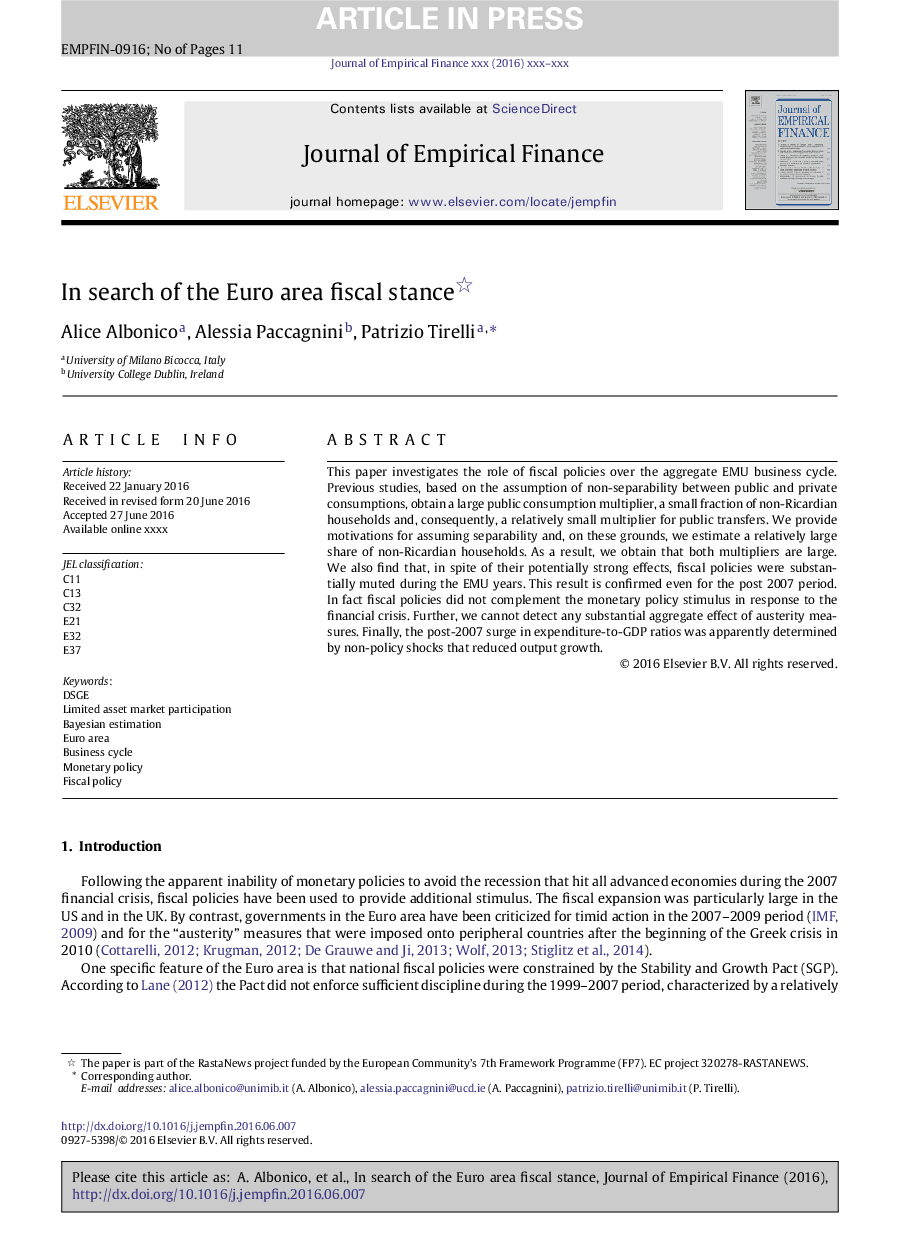| Article ID | Journal | Published Year | Pages | File Type |
|---|---|---|---|---|
| 5100364 | Journal of Empirical Finance | 2016 | 11 Pages |
Abstract
This paper investigates the role of fiscal policies over the aggregate EMU business cycle. Previous studies, based on the assumption of non-separability between public and private consumptions, obtain a large public consumption multiplier, a small fraction of non-Ricardian households and, consequently, a relatively small multiplier for public transfers. We provide motivations for assuming separability and, on these grounds, we estimate a relatively large share of non-Ricardian households. As a result, we obtain that both multipliers are large. We also find that, in spite of their potentially strong effects, fiscal policies were substantially muted during the EMU years. This result is confirmed even for the post 2007 period. In fact fiscal policies did not complement the monetary policy stimulus in response to the financial crisis. Further, we cannot detect any substantial aggregate effect of austerity measures. Finally, the post-2007 surge in expenditure-to-GDP ratios was apparently determined by non-policy shocks that reduced output growth.
Keywords
Related Topics
Social Sciences and Humanities
Economics, Econometrics and Finance
Economics and Econometrics
Authors
Alice Albonico, Alessia Paccagnini, Patrizio Tirelli,
